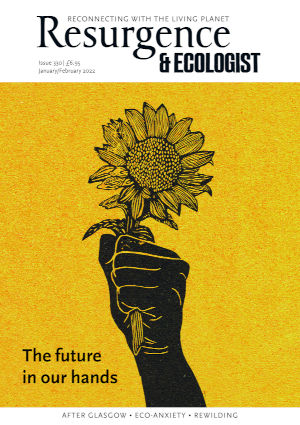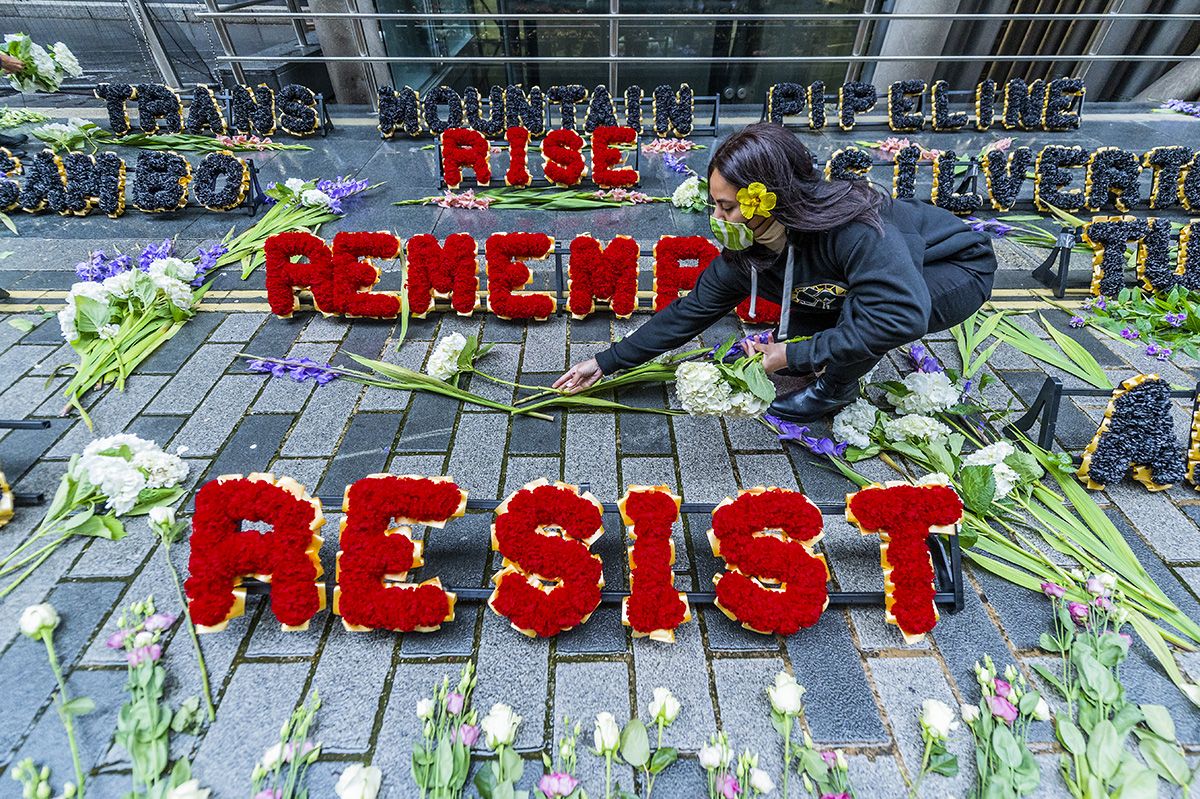A stupefying US$2.75 trillion dollars of investments has been funnelled into the fossil fuel industry by the world’s 60 leading banks since the Paris Agreement was signed six years ago. The five largest commercial and investment banks in the UK have, in even less time, piped more than US$300 billion into the same carbon-polluting industry.
Members of Lloyd’s of London, the global insurance marketplace, alone collectively hold more than US$30 trillion in capital. These members collectively represent one of the four biggest oil and gas insurers in the world. This cash and cover supports projects like the Adani Carmichael coal mine in Australia, the Trans Mountain tar sands pipeline in Canada, the Bahamas Petroleum Company’s offshore oil drilling, and coal mines in Poland.
This ongoing finance and insurance of fossil fuels in pursuit of short-term profits represents an existential threat to the life-support systems on which our civilisations depend and the stability of the global climate. But it also represents a historically unprecedented financial risk to the investors themselves – and to taxpayers like us around the world.
The world’s leaders, from Boris Johnson as UK prime minister, to Mario Draghi as G20 president, could conceivably do the right thing and start restricting the exploitation of gas, oil and coal reserves. If those fossil fuel assets were then to become stranded, the billions’ worth of investments could be rendered worthless or at least significantly reduced in value.
The world’s biggest banks and their investors are deemed by governments to be too big to fail, a fact we have come to accept in recent decades. So when their fossil fuel bets do turn bad, national governments including in the US and the UK will again bail out the bankers. This will involve taking on massive loans and printing yet more money, before paying everything back by raising taxes and cutting services for decades to come.
But – unusually when it comes to our compound environmental crises and our global economy – there is one simple solution at hand. It would cost governments nothing. It could be implemented immediately. And perhaps most importantly of all, it makes sense even to bankers. It is in the interests of the public – and also the investors themselves.
Economists Ann Pettifor and Stephany Griffith-Jones and economic historian Adam Tooze have called on the world’s governments to introduce tougher regulations so that the banks have to impose the highest possible risk-weighting for capital requirements when investing in fossil fuels. Put simply, this means that when a bank wants to invest US$1 in a coal mine it will need to hold a further US$1 to absorb any future losses. When that coal mine closes down, the bank does not go bust and does not turn to the government for a bailout.
The fact that banks and insurers are currently allowed to radically underestimate the risk of investments in fossil fuels is in effect a subsidy. If governments regulated the sector properly – and protected investors and the public – the cost of such gambling would be significantly higher. The lack of regulation risks the stability of the global economy, distorts the investment markets and keeps fossil fuels artificially cheap. Lest we forget, the fossil fuel industry already benefits from US$1.54 million a minute in direct subsidies and tax breaks provided by governments, according to the International Monetary Fund.
Benoît Lallemand, secretary general of pan-European public interest association Finance Watch, published a letter to world leaders during COP26 in Glasgow calling on them to adopt ‘one-for-one’ risk-weighting for fossil fuel investments. He said: “The global financial crisis of 2008 – and its disastrous political aftermath – have shown what happens when systemic risks in the financial system go unaddressed.
“Without action we face an even bigger economic crisis. This will be a failure to regulate of historic proportions, with the burden falling on taxpayers around the world when banks and insurers come begging for government bailouts. Our message to banks and insurance firms is this: if you want to finance new fossil fuel projects, do it at your own risk.”
The Sunrise Project, a global climate campaign, and Finance Watch have launched a ‘one-for-one’ campaign. They are asking that governments begin the “implementation of prudential regulation for fossil fuel financing commensurate with the risks involved”. The campaign has already won support from NGOs around the world. Chris Hohn, co-founder of The Children’s Investment Fund Foundation, a hedge fund with approximately US$30 billion in managed assets, has called for similar government measures.








